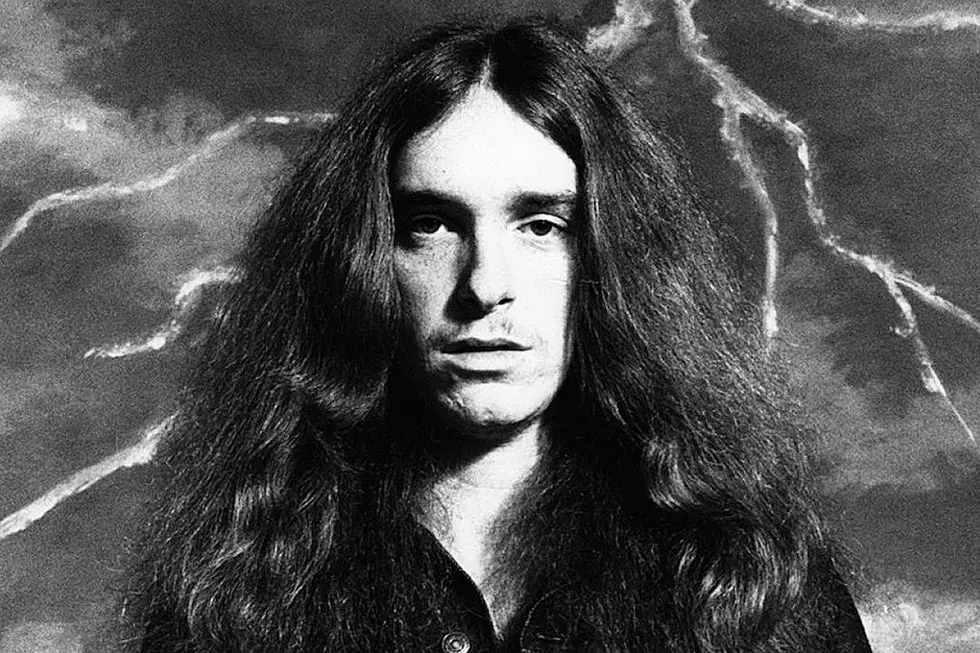
Cliff Burton – Biography
Joining Metallica in 1982—a year before the release of Kill 'Em All—former bassist Cliff Burton's impact on the metal band couldn't be more significant. From his signature finger-picking style to the energy and passion he brought to the band, Burton will forever remain a major part of Metallica's history and will always be in the hearts of fans across the world.
The Life of Cliff Burton
Burton was born on Feb. 10, 1962, in Castro Valley, Calif., to Jan and Ray. He was the baby of the family, having an older brother and sister. As a young kid, Burton was always interested in music and at the age of 13 picked up the bass guitar and started plucking away. In an interview with a 'Tallica fan site, Burton's mother explained that her son got into classical music and even studied Bach. His dedication to his craft was unmatched. "Between four and six hours a day, every single day, even after he got into Metallica," Jan said of Burton's practice schedule. "He'd stay up all night and sleep late."
The first band Burton created was known as EZ-Street, which included Jim Martin and Mike Bordin, both of whom would later play with Faith No More. A few years later, he joined Trauma and recorded the tune "Such a Shame," which was featured on Metal Blade's Metal Massacre II compilation. In 1982, while playing a gig with Trauma in Los Angeles, James Hetfield and Lars Ulrich saw Burton perform live and were immediately hooked. Looking to replace Ron McGovney on the bass, Hetfield and Ulrich talked to Burton and convinced him to join Metallica.
Burton's first major foray into the ears of rock fans came in the form of a shredding bass solo in "(Anesthesia) Pulling Teeth," from Kill 'Em All. This solo was reminiscent of the first time that Hetfield and Ulrich saw Burton perform live; his use of effects while playing bass combined with his fast, guitar-like shredding made his sound an important part of Metallica, the band's albums and their live shows, too.
Watch Cliff Burton Perform With Metallica In 1985
Burton would continue to build his Metallica legend through their next two studio albums. He was an integral part of Ride the Lightning, letting his style shine on songs like "For Whom the Bell Tolls" and "The Call of Ktulu." The next album, Master of Puppets, contained the bassist's favorite Metallica tune.
"My favorite song is "Master [of Puppets]." "Master," I think, is the best Metallica song yet," Burton said in a 1986 interview. "The lyrics are getting a lot better ... Everything's kind of growing a bit. It's progressing."
Watch Metallica Perform "Master of Puppets" in 1986
Everything Changed
During the European tour in support of Master of Puppets, the future of Metallica would be changed forever.
After playing a show in Stockholm, Sweden, Burton had the opportunity to pick where he got to sleep on the band's tour bus. After picking guitarist Kirk Hammett's bunk, Burton settled in for what he thought would be another routine night on the road. In the early morning of Sept. 27, 1986, Metallica's tour bus skidded off the road in southern Sweden. Burton was ejected from the bunk and flew through a window. As the accident spiraled on, the bus landed on Burton, leading to his death. No charges were filed against the driver, whom Hetfield initially claimed was drunk, but later a court decided he was not at fault for the accident or Burton's death.
Following the death of Burton, Jason Newsted joined Metallica as the new bassist and would stay with the band through 2001.
Burton played on Rickenbacker, Alembic and Aria Pro basses. He jammed through Mesa Boogie cabinets with his custom effects board, including a Morley Power Wah fuzz and Electro-Harmonix Big Muff pedal. If trying to emulate the master bassist, don't worry about deciding on which picks to use; Burton only played with his fingers.
On Oct. 3, 2006, a memorial for Burton was unveiled in Ljungby, Sweden, where the crash took place. It features a picture of Burton and the lyrics, "Cannot the Kingdom of Salvation take me home" from "To Live is to Die," featured on 1988's ...And Justice for All.
Metallica Members Reflect on the Life of Cliff Burton
All Metallica Songs Ranked
Metallica: A Photo Timeline of Their Remarkable Career
More From Ultimate Metallica









